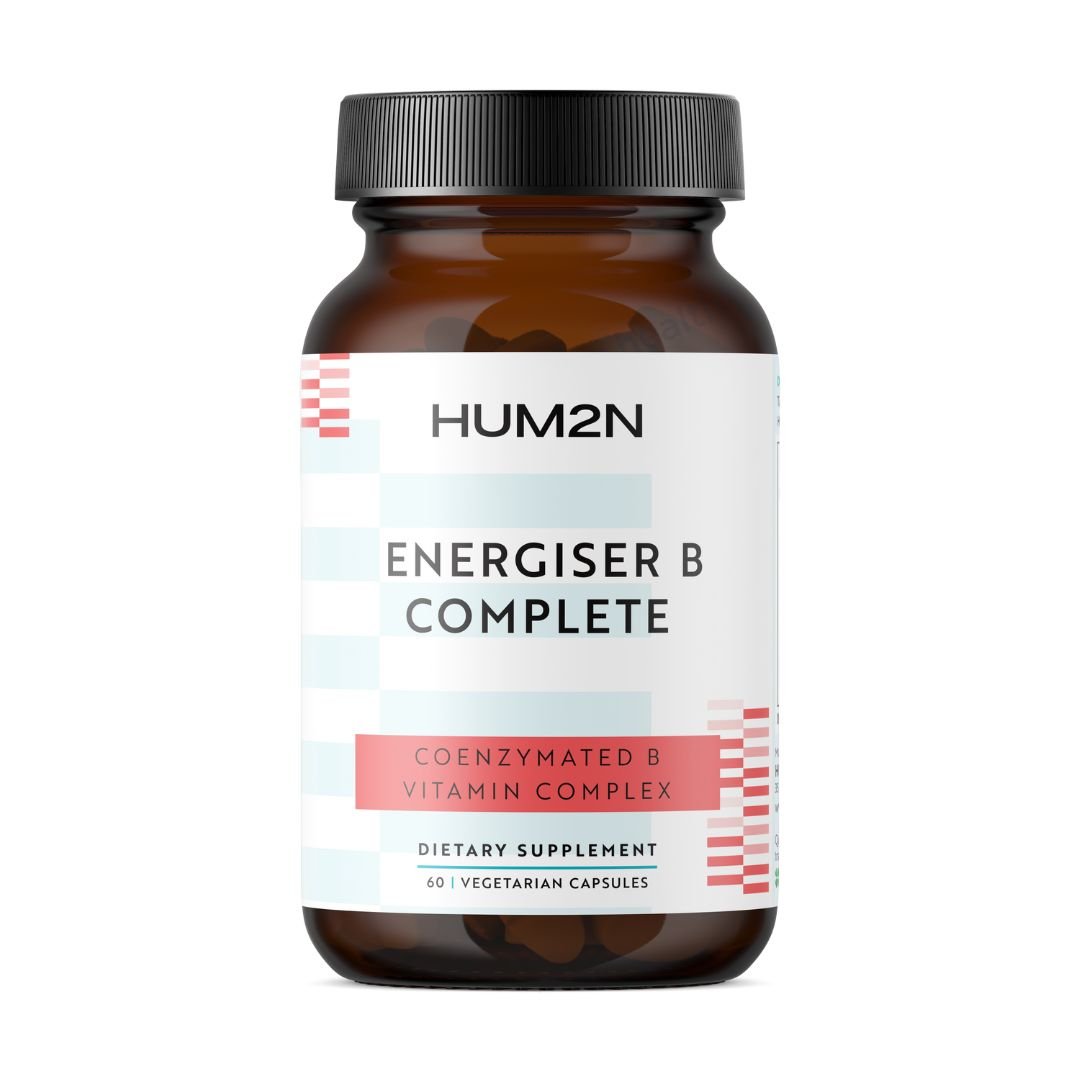It isn’t a coincidence that our gut is at the center of our body. Our gut is the portal from which outside energy, which we call food, is transformed into biochemical fuel for our cells to function, and our body to thrive.
In part 1 of this series, we discussed the journey of food, the mechanics of gut inflammation, and how gut rehab begins. In part 2, we will delve into the fascinating connection between the gut and the brain and how we can biohack digestive intelligence for better health.
Understanding & restoring the mind-gut connection
Our gut health is key to our wellbeing with a myriad of functions. It's tied up with hormone production, liver function, gut microbiome, immune function and mood. It’s where hormones and other chemicals that play intricate roles in many bodily functions are produced, and where a huge immune presence is found.
The digestive system is home to over a million neurons that are identical to those in the brain. That is why the digestive system is also known as the “second brain”. The gut and brain communicate through the central nervous system, hormones, and immune system.
-
Central nervous system1
The gut and the brain have a direct line to one another. This line is the vagus nerve and it runs from the brain through the stomach and down to the intestine (and much more!). It functions to move food (in various stages of digestion) through the entire tract including bowel movements. But it’s also involved in more complex tasks like hunger, satiety, energy regulation, and inflammation.
What’s even more fascinating is that the vagus nerve is bidirectional – not only does the brain send signals to the gut, but the gut is also engaging in crosstalk with our brain. They are in constant communication, regulating our physical and mental health. Gut health can influence neurotransmitter levels and inflammation in the brain, which in turn affects our energy levels, mood and behaviours. Scientists have even found that strains of gut bacteria take advantage of the vagus nerve to influence our dietary cravings and try and get us to eat more of their favourite foods!2
-
Hormones
Hormones are chemical signals that allow our tissues to talk to each other and turn on or turn off pathways or processes, even from far away. There are many examples of hormones produced by the brain that influence gut behaviour, but there are also hormones that are produced or activated by the gut.3
For example, the gut is responsible for producing 90% of serotonin, the hormone which makes us feel happy. If all is not well in the gut, we may feel irritable, unmotivated, fatigued and mentally sluggish from a serotonin decrease. The gut also contains a wide range of hormone receptors as hormones interact with the gut. Estrogen receptors in the gut help modulate gastric secretions while thyroid hormones influence intestinal motility.4,5
-
Immune cells
It is estimated that 70% of our immune cells are located in our gut. As the main entry point of the outside world into the body, it’s not surprising there is a large immune presence. However, that’s just one half of the picture. Our microbiome has a range of important roles that function through these immune cells and interact with our central nervous system. Microorganism-derived products can directly and indirectly influence immune cells which in turn can signal to the brain.6 One such product, bacterial LPS, is recognized by specific immune receptors on different cells to affect the regulation of pro-inflammatory molecules.7 In other words, the microbiome within the intestines communicates with your brain, playing a key role in physical and mental health.
Restoring Digestive Intelligence
Through the gut-brain connection, we think and live our emotions via our gut. Treating an “unhappy” gut - and an unhappy mind - requires a multifaceted approach. Optimal health can only be achieved when every aspect of your digestive system and your entire system is functioning as it should.
By exploring all the aspects of how your body responds to food, our digestive intelligence lab can uncover the root of gastrointestinal symptoms. We work to help ease bloating, clear brain fog, pinpoint food intolerances, or connect the dots between other symptoms and restore function.
Digestive intelligence also provides insight into your “second brain”. The gut microbiome diversity - and the presence of any parasites and pathogens - indicate your health status. It will also help us ensure that the trillions of microbes in your gut are working for you, not against you.
Testing is important
Why guess when we can test? To understand individual needs, testing is necessary and cost-effective as it saves time and provides clarity for truly individualised intervention. It can help rule out (or identify) diseases of the digestive tract, liver, and pancreas. It can also help to pinpoint the likely causes of food sensitivities and other digestive ailments.
Different blood markers can point to various digestive inflammation, dysfunction and insufficiencies - anything from leaky gut, not getting enough protein, or having enough but not digesting it due to hypochlorhydria, fatty liver, poor fat metabolism, chronic or acute infection from bacteria or parasites- to name a few. Looking at the patterns in the blood panel from an optimal function perspective- and between the lines to consider you as a whole person- we can see these and other health indicators that may be contributing to your state of wellbeing.
Examining the status of the gut microbiome begins with examining the diet for potential food sensitivities or allergies that could trigger an inflammatory reaction. This is best done with a Comprehensive Stool Analysis.
Check out our Comprehensive Stool Analysis Sample Report to see the range markers tested including pathogenic species, inflammation profile, immune factors and more.
The presence of different immunoglobulins, or antibodies, tell us whether you have an abnormal immune reaction to food, and how severe that reaction is. A true food allergy, such as the classic peanut allergy, is an IgE response. Meanwhile, IgA and IgG reactions are delayed in nature and indicate the presence of a food intolerance.
When food antigens enter the bloodstream through the gut lining due to compromised gut lining- often called ‘leaky gut’, these food particles stimulate the production of IgG antibodies.7 These antibodies bind to food antigens in the blood or in tissues and form immune complexes (IC). By measuring specific immune complexes containing C3d (IC-C3d), we can determine which foods cause sensitivities and plan a personalized gut protocol.
Check out our Food Sensitivity Test Sample Report to review the full list of foods tested.
TREATING OUTSIDE THE BOX
We may be experiencing physical symptoms of discomfort but as mentioned the gut brain axis is powerful. How we think, feel and perceive our lives profoundly affects our digestive system. There is substantial evidence that psychological therapies can be effective in reducing the severity of gastrointestinal symptoms. Treatments such as cognitive-behavioral therapy, hypnotherapy, relaxation therapy, breathwork, and biofeedback can help to change habitual thoughts, feelings, and behaviors that trigger symptoms.
Our clinic offers options such as:
- Relaxation therapy combined with cognitive-behavioral therapy (CBT)
- Gut-directed relaxation training
- Hypnotherapy
- Biofeedback to teach you how to control automatic body responses like heart rate
- Breathwork techniques
- Meditation
- Wellness technology such as Cryotherapy and Hyperbaric Oxygen Therapy
Being the healthiest you can be, begins in the gut. The gut is intrinsically linked to the brain and together these systems influence virtually every aspect of health. The gut and brain communicate through the central nervous system’s vagus nerve; various hormones and neurotransmitters; and immune cells that reside in the gut.
Optimizing digestive intelligence will help support a healthy gut and can remedy gastrointestinal complaints, but it can also support mood, energy, immunity, allergies, and more. The first step is to identify the causes of symptoms through functional laboratory tests such as stool analysis and food intolerance testing.
After understanding your unique gut system, our team can help you apply a personalized treatment plan and get you on the path to feeling happier and healthier and recommend powerful medical-grade supplements that can help enhance your gut health.
At HUM2N, our team of experts have designed an Optimal Gut Stack that supports gut and digestive issues by improving digestion, intestinal functions, regularity and bowel function.
Optimal Gut Stack

This stack aids the assimilation of macro and micronutrients and optimal clearing of waste products. It also provides key ingredients that help the body repair and restore the gastrointestinal integrity and function as well as support the growth of healthy gut bacteria.
REFERENCES
- Martin CR, Osadchiy V, Kalani A, Mayer EA. The Brain-Gut-Microbiome Axis. Cell Mol Gastroenterol Hepatol. 2018;6(2):133-148. Published 2018 Apr 12. doi:10.1016/j.jcmgh.2018.04.003
- Alcock J, Maley CC, Aktipis CA. Is eating behavior manipulated by the gastrointestinal microbiota? Evolutionary pressures and potential mechanisms. Bioessays. 2014;36(10):940-949. doi:10.1002/bies.20140007
- Sun LJ, Li JN, Nie YZ. Gut hormones in microbiota-gut-brain cross-talk. Chin Med J (Engl). 2020;133(7):826-833. doi:10.1097/CM9.0000000000000706
- Yang X, Guo Y, He J, et al. Estrogen and estrogen receptors in the modulation of gastrointestinal epithelial secretion. Oncotarget. 2017;8(57):97683-97692. Published 2017 May 31. doi:10.18632/oncotarget.18313
- Pustorino S, Foti M, Calipari G, et al. Interazioni funzionali tra tiroide e motilità gastrointestinale [Thyroid-intestinal motility interactions summary]. Minerva Gastroenterol Dietol. 2004;50(4):305-315.
- https://www.nature.com/articles/d42859-019-00021-3
- Zheng D, Liwinski T, Elinav E. Interaction between microbiota and immunity in health and disease. Cell Res. 2020;30(6):492-506. doi:10.1038/s41422-020-0332-7
- Ait-Belgnaoui A, Durand H, Cartier C, et al. Prevention of gut leakiness by a probiotic treatment leads to attenuated HPA response to an acute psychological stress in rats. Psychoneuroendocrinology. 2012;37(11):1885-1895. doi:10.1016/j.psyneuen.2012.03.024
- Janeway CA Jr, Travers P, Walport M, et al. Immunobiology: The Immune System in Health and Disease. 5th edition. New York: Garland Science; 2001. The mucosal immune system. Available from: https://www.ncbi.nlm.nih.gov/books/NBK27169/







